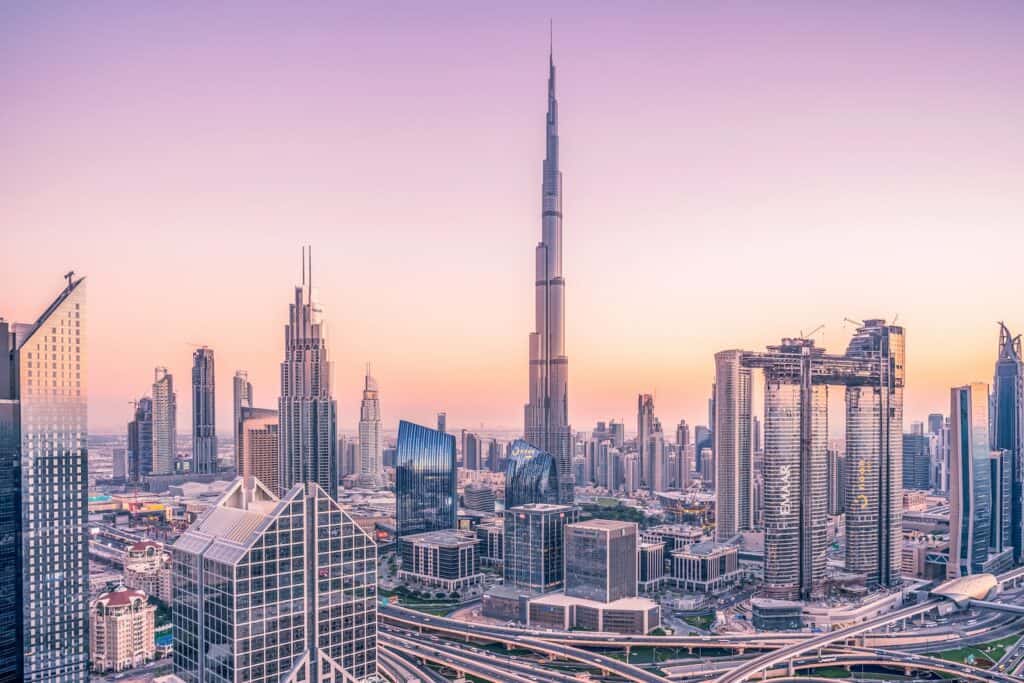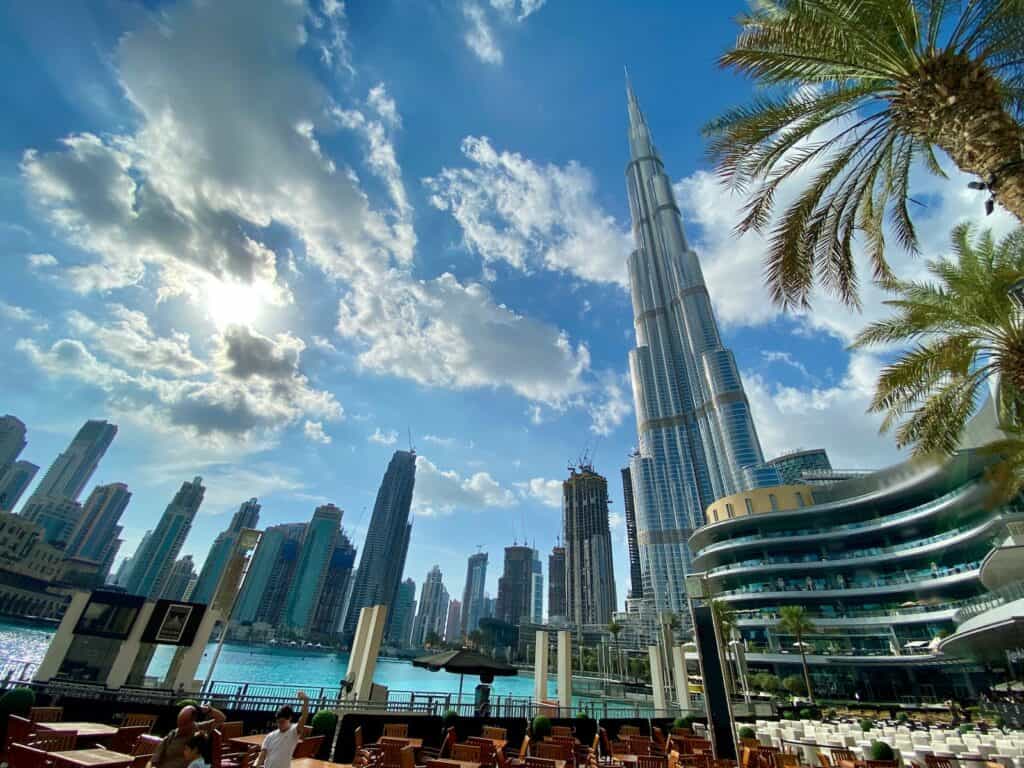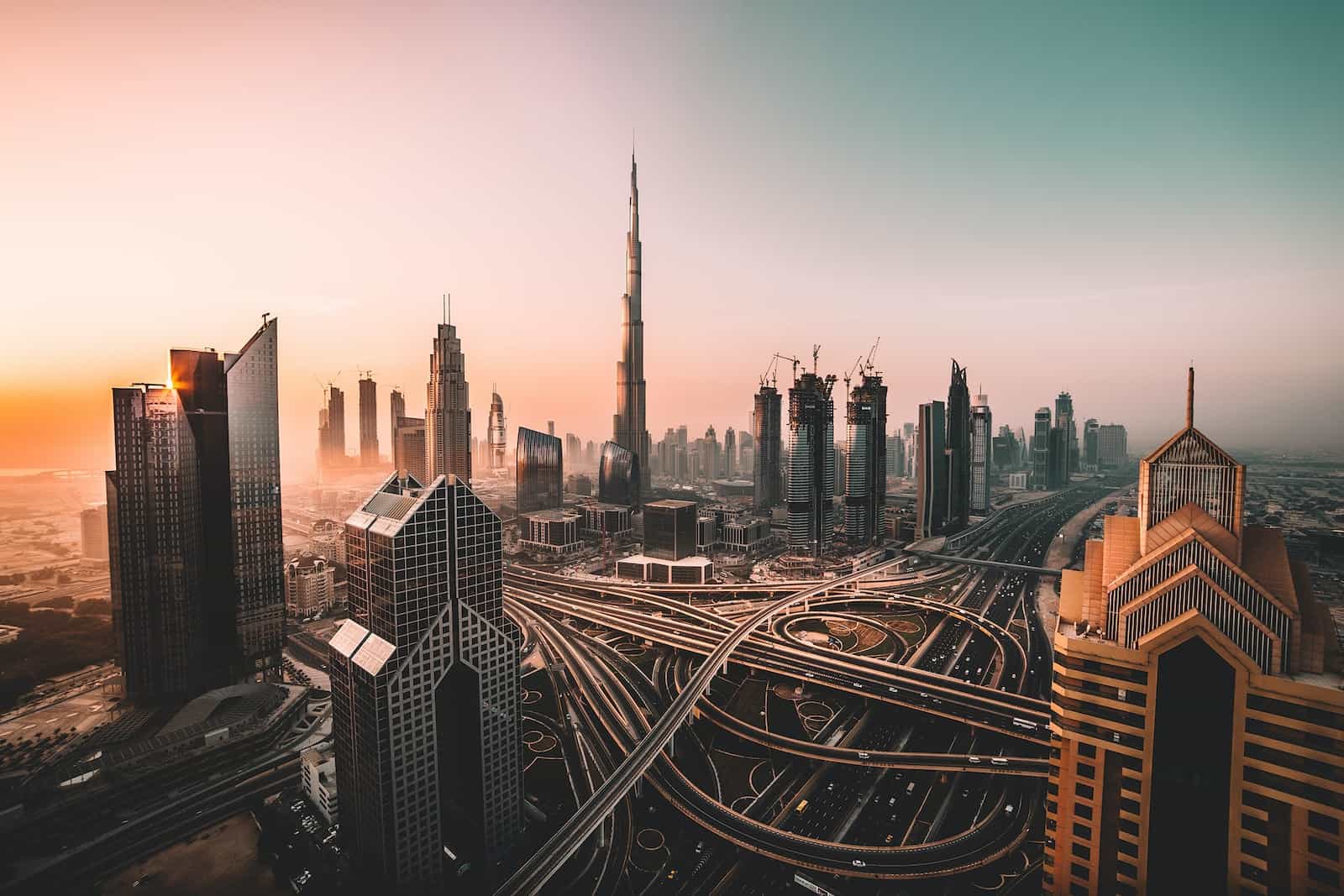Dubai, one of the fastest-growing cities in the world, is well-known for its luxury real estate market and skyline dominated by modern architectural marvels. The city has become a sought-after destination for property investors and potential residents alike, thanks to its strategic location, world-class infrastructure, and attractive lifestyle offerings. The current growth in the Dubai real estate market presents a plethora of opportunities for those looking to invest in or purchase property in this vibrant metropolis.
Real estate in Dubai comprises various property types, including residential, commercial, and industrial spaces. Each type caters to different budgets, preferences, and investment goals. The process to buy property in Dubai is well-structured and straightforward, with clear guidelines and requirements for local and foreign buyers. This article provides a comprehensive overview of the Dubai real estate market, covering essential information on property types, ownership options, the purchasing process, legal factors, financing options, and property management.
If you’re interested in buying property in Dubai, this guide should serve you well. Keep in mind that rules and regulations are subject to change at any time. Reach out to us if you find misinformation or have questions.
Types of Properties in Dubai
The Dubai real estate market offers a diverse range of property options to suit various budgets and preferences. In this section, we will cover the various property types that you’ll find available in the city, discussing residential, commercial, and industrial properties in detail.

Residential Properties
Residential properties in Dubai cater to a wide array of lifestyles, from opulent villas to modest apartments. These properties can be found in various neighborhoods, each offering its unique set of amenities and attractions. Some popular areas for residential properties include Downtown Dubai (great views of the Burj Khalifa), Palm Jumeirah, Dubai Marina, Jumeirah Beach Residence, Dubai Hills Estate and Arabian Ranches. Residential property options include:
Apartments
Studio, lofts, one-bedroom, two-bedroom, luxurious apartments, and larger sq ft units are available in low-rise, mid-rise, and high-rise buildings. Apartments in Dubai offer varying levels of luxury and come with a range of amenities such as swimming pools, gyms, and communal spaces.
You’ll can find an apartment for sale almost everywhere in Dubai, so whether you’re interested in buying property in Business Bay, Palm Jumeirah, Downtown Dubai (near City Walk), or Dubai Marina, you should have no issues finding many Dubai property options.
When it comes to size, a studio apartment typically will have the least sq ft and multiple-bedroom luxury apartments can have the most sq ft. The cost per sq ft highly depends on the area people choose to live.
Villas and Townhouses
For those seeking more space and privacy, villas and townhouses provide an ideal solution. These Dubai properties are typically located in gated communities, offering added security, additional sq ft with many bedrooms, and access to communal facilities such as parks, sports centers, restaurants, and retail units. Finding a villa for sale in Dubai isn’t challenging.
If you’re after a sense of community, a villa or townhouse might be a better option compared to an apartment.
Penthouses and Duplexes
For the ultimate luxury living experience, penthouses and duplexes offer expansive living spaces, often with private terraces, high-end finishes, and breathtaking views of the city. You can find these for sale in Dubai in many of the most popular areas.
Commercial Properties
Commercial properties in Dubai cater to businesses of all sizes, from startups to multinational corporations. These spaces are designed to meet the specific requirements of various industries and sectors. Some of the available commercial property options include:
Office Spaces
From small offices to entire floors in commercial towers, Dubai offers a wide selection of office spaces. Business districts like Business Bay, Dubai International Financial Centre (DIFC), and Jumeirah Lake Towers are popular choices for office spaces.
Retail Spaces
Dubai is known for its shopping culture, and there is no shortage of retail spaces in the city. Malls, shopping centers, and standalone shops are available to accommodate a variety of businesses, from boutiques to large-scale retail outlets.
Warehouses and Industrial Units
Industrial areas like Al Quoz, Jebel Ali, and Dubai Investment Park offer warehouses and industrial units suitable for manufacturing, storage, and logistics purposes.
Industrial Properties
Industrial properties in Dubai are designed to cater to the needs of the manufacturing, logistics, and warehousing sectors. These Dubai properties can be found in specialized zones such as Jebel Ali Free Zone, Dubai Industrial City, and Dubai Investment Park. Industrial properties typically include:
Warehouses
Available in various sizes and specifications, warehouses are suitable for storage, distribution, and light manufacturing purposes.
Factories and Manufacturing Units
These Dubai properties are designed to accommodate the requirements of different industries, offering the necessary infrastructure and utilities for smooth operations.
Labour Accommodations
To support the workforce in the industrial sectors, Dubai offers labour accommodations with essential amenities and facilities.
By understanding the types of properties available in Dubai, potential buyers and investors can make informed decisions based on their budget, preferences, and investment goals.
Ownership Options: Freehold vs. Leasehold Properties
In Dubai, property ownership is categorized into two main types: freehold and leasehold. Understanding the difference between these ownership options is crucial for potential buyers, as it affects their rights and obligations as a property owner. In this section, we will discuss the benefits and drawbacks of each ownership option and clarify which areas in Dubai allow freehold ownership for foreigners.

Dubai Freehold Properties
Freehold ownership grants the buyer complete ownership of the property, including the land on which it stands. This type of ownership allows the owner to sell, lease, or modify the property without any restrictions, subject to local laws and regulations. Some benefits of freehold ownership include:
- Full control over the property: Freehold owners have the freedom to manage and make decisions regarding their property as they see fit.
- Long-term investment: Freehold properties are generally considered more valuable and stable long-term investments compared to leasehold properties.
- No ground rent or lease renewal fees: Freehold owners are not required to pay ground rent or lease renewal fees, as they own the land on which their property stands.
However, freehold ownership also comes with certain responsibilities, such as the obligation to maintain the property and bear any related costs.
In Dubai, freehold ownership for foreigners is limited to designated areas known as “freehold zones.” These zones include popular locations like Palm Jumeirah, Downtown Dubai, Dubai Marina, Jumeirah Village Circle, Jumeirah Village Triangle, Dubai Hills Estate, Business Bay, Jumeirah Golf Estates, and Jumeirah Beach Residence, among others. Review the full list of Dubai freehold zones.
Dubai Leasehold Properties
Leasehold ownership grants the buyer the right to use and occupy a property for a fixed period, usually ranging from 10 to 99 years. The land on which the property stands remains under the ownership of the freeholder (also known as the landlord or lessor). Some benefits of leasehold ownership include:
- Lower initial cost: Leasehold properties are typically cheaper to purchase than freehold properties, making them more accessible to buyers with limited budgets.
- Limited responsibility for property maintenance: Leasehold owners are often not responsible for maintaining the common areas of the property, as this responsibility falls on the freeholder.
However, leasehold ownership also has its drawbacks:
- Limited control over the property: Leasehold owners may face restrictions on property modifications and must seek the freeholder’s approval for certain changes.
- Ground rent and lease renewal fees: Leasehold owners are required to pay ground rent to the freeholder and may face lease renewal fees once the lease term expires.
- Depreciating value: As the lease term nears its end, the value of a leasehold property typically decreases, making it a less attractive investment compared to freehold properties.
In conclusion, both freehold and leasehold ownership options have their benefits and drawbacks. It is essential for potential buyers to consider their long-term goals and preferences when choosing between freehold vs. leasehold properties in Dubai. Additionally, consulting a professional can help buyers understand the legal implications and specific regulations regarding property ownership in Dubai.
Process of Buying Real Estate in Dubai
Purchasing real estate in Dubai involves several steps that require careful attention and planning. This section outlines the step-by-step process for buying property in the city, guiding potential buyers through each stage of the journey.

- Research and Market Analysis: Begin by conducting thorough research on the Dubai real estate market to understand current trends, property prices, and potential investment opportunities. Do some searching and familiarize yourself with the different areas and neighborhoods to determine which location best suits your preferences and budget. We recommend areas like Dubai Marina, Dubai Hills Estate, Arabian Ranches, Downtown Dubai, Business Bay, Palm Jumeirah, Jumeirah Village Circle, and Dubai Creek Harbour. Also consider the number of bedrooms and sq ft your after for your apartment, villa, or home.
- Find a Registered Agent: Enlist the services of a registered real estate agent who can help you navigate the market and find the right property. Search and ensure that the agent is licensed by the Dubai Land Department (DLD) and has extensive knowledge of the local market.
- Property Viewings: Visit a range of properties that fit your criteria to compare them and make an informed decision. Your real estate agent can arrange viewings and provide valuable insights on the advantages and disadvantages of each property. Don’t like what you see? Always request to view more properties.
- Price Negotiation: Once you have identified the property you wish to purchase, negotiate the price with the seller. Your agent can provide guidance on market rates and help you reach a mutually agreeable price. You can also search for recent sales by other buyers.
- Due Diligence: Conduct due diligence on the chosen property to ensure that it is free from any legal or financial issues. This includes verifying the seller’s ownership, checking for outstanding mortgages or debts, and ensuring that the property is compliant with local regulations.
- Draft and Sign Sales and Purchase Agreement (SPA): Upon successful negotiation and due diligence, draft and sign a Sales and Purchase Agreement (SPA) with the seller. This legally binding document outlines the terms and conditions of the sale, including the purchase price, payment terms, and handover date.
- Apply for Financing (if applicable): If you require financing for your property purchase, apply for a mortgage or a developer-sponsored payment plan. Be prepared to provide the necessary documents, such as proof of income and credit history, to secure the financing.
- Property Valuation: Arrange for a property valuation to determine its current market value. This step is particularly important if you are applying for a mortgage, as it helps the bank assess the property’s worth and determine the loan amount.
- Obtain No Objection Certificate (NOC): Before finalizing the transaction, the seller must obtain a No Objection Certificate (NOC) from the developer or the property management company. The NOC confirms that the seller has settled any outstanding dues and that the property is clear for transfer.
- Pay the Deposit: Pay the agreed-upon deposit to the seller to secure the property. The deposit amount is usually 10% of the purchase price, but it can vary depending on the terms of the agreement.
- Register the Property: Register the property with the Dubai Land Department (DLD) by submitting the necessary documents and paying the associated fees. The DLD will issue a title deed, officially transferring the property ownership to you.
- Finalize the Transaction: Upon successful registration, pay the remaining balance and complete any other requirements stipulated in the SPA. The seller will then hand over the keys, and you can take possession of your new property.
In conclusion, buying real estate in Dubai involves a series of well-defined steps, from research and property viewings to negotiations and registration. By understanding this process and working with a professional agent, you can ensure a smooth and successful property purchase in Dubai.
Legal Factors and Requirements
Understanding the legal factors and requirements when buying real estate in Dubai is essential to ensure a smooth transaction. This section discusses various aspects of property ownership, from residency status to required legal documents, and is organized into clear sub-sections for easy reference.

Residency Status
One of the benefits of purchasing property in Dubai is the possibility of obtaining a residence visa. Many investors who buy a property worth AED 1 million or more may be eligible for a renewable two- or three-year residence visa, depending on the property’s value. This visa allows the investor, their spouse, and dependent children to reside in the UAE.
Buying as a Foreigner in Dubai
Foreign nationals are allowed to buy properties in Dubai, with some restrictions on ownership. While expats can purchase a freehold property in designated areas, known as freehold zones, leasehold properties can be acquired in other parts of the city. It is important to research and understand these restrictions before committing to a property purchase.
Restrictions on Property Ownership in Dubai
In Dubai, property ownership is divided into two categories: freehold and leasehold. Freehold ownership allows the buyer to own the property and the land it stands on indefinitely. Leasehold ownership grants the buyer the right to use the property for a specific period, usually between 10 and 99 years. Leasehold properties can be renewed upon expiry but do not grant full ownership of the land.
Required Legal Documents
To buy a property in Dubai, you need to provide several legal documents. These include:
- Passport: A valid passport is required for identification purposes.
- Visa (if applicable): Non-UAE nationals may need to present their UAE residence visa.
- Proof of Funds: Buyers should provide evidence of sufficient funds to cover the property purchase, such as a bank statement or a pre-approval letter from a mortgage provider.
- Sales and Purchase Agreement (SPA): This legally binding document outlines the terms and conditions of the sale, including the purchase price and payment terms.
- Title Deed: The title deed, issued by the Dubai Land Department (DLD), confirms the property’s ownership.
It is important to note that additional documents may be required, depending on the specific property and the buyer’s circumstances. Consulting with a professional real estate agent or legal advisor can help ensure that you have all the necessary documentation for a successful property purchase in Dubai.
Off-Plan vs. Ready Properties in Dubai
When purchasing property in Dubai, buyers can choose between off-plan and ready properties. Each option has its advantages and disadvantages, which should be carefully considered before making a decision. This section explores the pros and cons of off-plan and ready properties, including aspects such as payment plans, potential risks, and opportunities for capital appreciation.
Dubai Off-Plan Properties
Off-plan properties refer to new projects like Damac Lagoons that are still under construction or in the planning phase. Buyers purchase these properties based on the developer’s plans and designs, often at a lower price compared to ready properties. You’ll find off-plan properties for sale throughout the city.
Pros:
- Attractive Payment Plans: Developers usually offer flexible payment plans for off-plan properties, allowing buyers to make staggered payments over an extended period.
- Capital Appreciation: Off-plan properties often have a higher potential for capital appreciation, as property prices tend to increase as construction progresses and the project nears completion.
- Customization Options: Some developers allow buyers to customize their property’s layout and finishes, providing a personalized touch to the property.
Cons:
- Construction Delays: Off-plan properties carry the risk of construction delays, which can impact the expected completion date and, subsequently, the property’s value.
- Uncertainty: As buyers rely on the developer’s plans and designs, there is always the risk of the final property not meeting their expectations in terms of quality or design.
- Developer Insolvency: In rare cases, the developer may face financial difficulties, leading to project abandonment or bankruptcy. Buyers should conduct thorough due diligence before investing in an off-plan property.
Dubai Ready Properties
Ready properties, also known as completed properties, are those that have been finished and are available for immediate possession.
Pros:
- Immediate Possession: Buyers can move in or rent out the property immediately, generating rental income or enjoying their new home without waiting for construction to be completed.
- Tangible Asset: Ready properties allow buyers to inspect the actual property, assess its quality, and ensure it meets their expectations before purchase.
- Established Communities: Purchasing in a completed development often means that the surrounding infrastructure and amenities, such as schools, shops, and parks, are already in place.
Cons:
- Higher Prices: Ready properties generally come with a higher price tag compared to off-plan properties due to the immediate availability and lower risk involved.
- Limited Customization: Buyers have less flexibility in customizing the property, as any changes would need to be made post-purchase, often at an additional cost.
- Upfront Payment: Ready properties typically require a more substantial upfront payment, as developers do not usually offer the same extended payment plans as they do for off-plan properties.
In conclusion, both off-plan and ready properties in Dubai have their advantages and drawbacks. Prospective buyers should weigh these factors carefully and consider their investment goals, risk appetite, and financial capabilities before committing to a property purchase in Dubai. Consulting a professional real estate agent can also provide valuable guidance in making an informed decision.
Financing and Mortgages
Purchasing real estate in Dubai often requires substantial financial resources, and many buyers opt for financing options to ease the burden. This section discusses the various financing options available to buyers in the Dubai real estate market, including mortgages and developer-sponsored payment plans. Additionally, it explains the basic qualifications for securing financing in Dubai, touching upon Loan-to-Value (LTV) ratios, credit scores, and other relevant factors, as well as specific mortgage options and their implications.
Mortgages
Mortgages are a common financing option for purchasing property in Dubai. Local and international banks, as well as financial institutions, offer a variety of mortgage products catering to different needs and preferences.
Loan-to-Value (LTV) Ratios
The LTV ratio represents the percentage of the property’s value that the lender is willing to finance. In Dubai, LTV ratios typically range from 70-80% for UAE nationals and 75-80% for expatriates. First-time homebuyers can sometimes secure higher LTV ratios, subject to specific terms and conditions.
Credit Scores
Buyers need to have a good credit score to secure a mortgage in Dubai. Credit scores are calculated based on credit history, outstanding debts, and timely repayment of previous loans. A higher credit score can lead to better mortgage terms and lower interest rates.
Fixed vs. Variable Rates
Mortgages in Dubai can come with fixed or variable interest rates. Fixed-rate mortgages offer predictable monthly payments over the entire loan term, whereas variable-rate mortgages are subject to interest rate fluctuations, which may result in changes to monthly payments.
Mortgage Tenure
Mortgage tenures can range from 5 to 25 years, depending on the buyer’s age, financial profile, and the property type. Longer tenures result in smaller monthly payments but higher overall interest costs.
Developer-Sponsored Payment Plans
Many developers in Dubai offer attractive payment plans to facilitate property purchases, especially for off-plan properties. These plans often include staggered payments over an extended period, with a certain percentage payable upon booking and the remaining balance spread out over multiple installments.
Basic Qualifications for Securing Financing
To secure financing in Dubai, buyers must meet certain criteria, which may include:
- Proof of stable income and employment
- A good credit history and score
- Adequate down payment (based on LTV ratios)
- Age requirements (usually between 21 and 65 years old)
In conclusion, financing options like mortgages and developer-sponsored payment plans play a crucial role in making property purchases more accessible to buyers in Dubai. To ensure the best possible terms and conditions, prospective buyers should consult with mortgage advisors or financial professionals and explore various financing options before committing to a property purchase.
Property Registration and Transfer Process
The property registration and transfer process in Dubai is a crucial aspect of buying real estate, ensuring the proper transfer of ownership and safeguarding the buyer’s rights. This section explains the procedures, required documents, and associated fees involved in property registration and transfer, as well as the role of the Dubai Land Department in overseeing the process.
Dubai Land Department (DLD)
The Dubai Land Department is the government authority responsible for regulating real estate transactions, registration, and transfer of property ownership in the emirate. The DLD ensures transparency and security for all parties involved in property transactions, making the process smooth and efficient.
Procedures
The property registration and transfer process in Dubai typically involves the following steps:
- Obtain a No Objection Certificate (NOC): The seller must obtain an NOC from the property developer, confirming that there are no outstanding dues or issues related to the property.
- Sign a Memorandum of Understanding (MOU): The buyer and seller sign an MOU, outlining the terms and conditions of the sale, including the purchase price, payment terms, and any other relevant details.
- Visit the DLD for property transfer: Both parties, along with their registered agents, visit the DLD to complete the property transfer process. The DLD verifies the required documents and confirms the transfer of ownership.
- Pay the transfer fees: The buyer is required to pay the property transfer fees, typically calculated as a percentage of the property value (usually 4%). Additional administrative fees may apply.
- Receive the new title deed: Once the transfer fees are paid, the DLD issues a new title deed in the buyer’s name, completing the property transfer process.
Required Documents
The following documents are generally required for property registration and transfer in Dubai:
- Original title deed
- Passport copies of the buyer and seller
- NOC from the property developer
- MOU between the buyer and seller
- Proof of payment for transfer fees
Associated Fees
The property registration and transfer process involves various fees, including:
- Property transfer fees (typically 4% of the property value)
- Administrative fees (may vary)
- NOC fees (charged by the developer, if applicable)
- Real estate agent commission (usually 2% of the property value)
In conclusion, the property registration and transfer process in Dubai is a vital component of buying real estate. By understanding the procedures, required documents, and associated fees, buyers can ensure a smooth and secure transaction. It is advisable for prospective buyers to consult a professional, such as a registered real estate agent, to guide them through the process and ensure all legal aspects are met.
Maintenance and Property Management
Proper maintenance and property management are essential aspects of owning real estate in Dubai. Ensuring that properties remain in excellent condition not only enhances their appeal but also helps to maintain or increase their value over time. This section discusses the importance of property maintenance, management, and associated costs, such as service charges and maintenance fees. It also covers the management of rental properties, if applicable.
Service Charges
Service charges are fees paid by property owners to cover the costs of maintaining and operating common areas in a residential or commercial building, such as swimming pools, gyms, landscaping, and security services. These charges vary depending on the type and size of the property, the facilities offered, and the management company’s fees. It’s crucial for property owners to understand and budget for these charges, as they are typically paid annually or in installments throughout the year.
Maintenance Fees
Maintenance fees cover the expenses of maintaining and repairing individual properties, including routine tasks such as plumbing, electrical work, painting, and other general repairs. Property owners should allocate funds for regular maintenance to ensure their properties remain in good condition, preventing potential issues from escalating into costly repairs.
Managing Rental Properties
For property owners who choose to rent out their properties, effective property management is crucial. This can involve finding and screening tenants, preparing lease agreements, collecting rent, addressing maintenance requests, and handling any disputes or legal matters. Property owners may choose to manage their rental properties independently or hire a professional property management company to handle these tasks on their behalf. While hiring a property management company involves additional fees, it can save time and effort, providing peace of mind for property owners.
Importance of Property Maintenance and Management
Proper property maintenance and management are vital for several reasons:
- Preserving or increasing property value: Well-maintained properties are more likely to appreciate in value over time, making them more attractive to potential buyers or tenants.
- Attracting and retaining tenants: Tenants are more likely to rent and remain in properties that are well-maintained and professionally managed.
- Preventing costly repairs: Regular maintenance can help identify potential issues early on, reducing the likelihood of expensive repairs and damage to the property.
In conclusion, maintenance and property management are crucial aspects of owning real estate in Dubai. By understanding the associated costs and responsibilities, property owners can ensure their properties remain in excellent condition, benefiting from potential capital appreciation and rental income. Prospective buyers are encouraged to consult with professionals to ensure all aspects of property ownership are met and explore financing options when considering property purchases in Dubai.
Conclusion
In summary, the Dubai real estate market presents a wealth of opportunities for potential residents and many investors, thanks to its continuous growth and diverse range of property types. With options for residential, commercial, and industrial real estate, there is something to suit every budget and preference.
Understanding the differences between freehold and leasehold properties is essential, as it directly impacts ownership rights and options for foreign buyers. By following the well-defined process of purchasing real estate in Dubai, prospective buyers can navigate the market with confidence. This includes researching properties, working with registered agents, and following due diligence during the transaction.
Legal factors and requirements, such as residency status and restrictions on property ownership, must also be considered to ensure a smooth and compliant property purchase. Weighing the pros and cons of off-plan versus ready properties can help buyers make informed decisions based on their unique needs and investment goals.
Financing options, including mortgages and developer-sponsored payment plans, are available to buyers in the Dubai real estate market. Understanding the qualifications for securing financing, such as LTV ratios and credit scores, as well as the implications of different mortgage options, is vital for a successful property purchase.
The property registration and transfer process, overseen by the Dubai Land Department, ensures that all transactions are transparent and legally binding. Property maintenance and management are crucial aspects of owning real estate in Dubai, and property owners must be aware of the associated costs and responsibilities, such as service charges, maintenance fees, and rental property management.
In conclusion, the appeal of the Dubai real estate market lies in its diverse property types, ownership options, and the well-defined buying process. Prospective buyers are encouraged to consult with professionals to ensure all legal aspects are met and explore financing options when considering property purchases in Dubai. By taking these steps, buyers can confidently invest in the thriving Dubai real estate market and enjoy the benefits that come with property ownership in this dynamic city.

